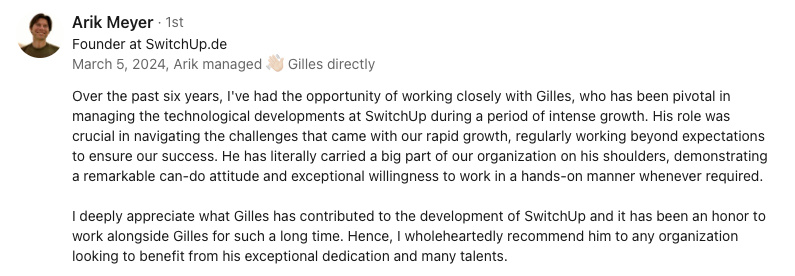Abstract:
The article highlights the transformative potential of unstructured data for businesses, particularly startups, in today's digital landscape. By leveraging Natural Language Processing (NLP) tools like sentiment analysis, topic modeling, Named Entity Recognition (NER), and text classification, companies can extract valuable insights from sources such as emails, social media posts, and customer reviews. These insights enable more precise marketing strategies, product innovation, and improved customer engagement. The article underscores real-world applications, citing examples like UK-based Phrasee and Israeli startup Xplenty, which use NLP to enhance operational efficiency and decision-making. Additionally, it addresses challenges such as language diversity and GDPR compliance, advocating for multilingual models and open-source collaborations. By integrating NLP with existing systems, businesses can optimize their data analytics, leading to better decision-making and a competitive edge. The piece concludes by emphasizing the role of emerging NLP technologies, like real-time analytics and conversational AI, in maintaining a competitive edge and fostering growth.
In the fast-paced digital world, businesses are discovering a wealth of opportunities in unstructured data. This data, ranging from emails to social media posts, often holds insights that go beyond traditional metrics. For startups, understanding customer feedback can be the key to thriving rather than merely surviving.
Natural Language Processing (NLP) helps make sense of this data by transforming unstructured information into valuable insights. By understanding customer sentiments, startups can refine marketing strategies and innovate products to meet market demands. Let's explore how unstructured data, when analyzed with NLP, can aid business growth.
Unlocking the Power of Unstructured Data
The Hidden Potential of Unstructured Data
Unstructured data is a treasure chest full of potential. It includes emails, social media posts, and customer reviews, all of which offer insights often missed by traditional data. For startups, leveraging this data can be transformative. In cities like Berlin, customer feedback has provided trends and insights that conventional metrics didn't capture. While structured data shows sales figures, the subtle hints in reviews can guide strategic decisions, offering a fuller market picture.
NLP plays a crucial role here. It helps startups understand sentiments and patterns in unstructured data, leading to more precise business decisions. NLP can decode the emotional undertones in customer interactions, guiding marketing and product development to align with audience needs. Unlike structured data, which follows predefined rules, unstructured data allows businesses to discover unexpected insights and reshape strategies.
Transforming Text into Insights with NLP
Sentiment analysis is a key NLP tool that helps startups understand their customers' feelings. For instance, if a startup receives negative social media feedback, sentiment analysis can quickly reveal public sentiment, allowing a company to adjust its strategy, such as offering personalized service or changing product features. Another useful technique is Named Entity Recognition (NER).
NER extracts important entities from text, like names or places, helping startups spot market trends and opportunities. It's like having a radar that highlights industry topics gaining traction. Topic modeling also plays a crucial role.
Topic modeling helps startups identify main themes in customer feedback, guiding product and marketing strategies. Benefits include:
- Spotting market trends
- Adjusting product offerings
- Enhancing competitive intelligence
These NLP techniques help businesses turn unstructured text into actionable insights, driving growth and innovation.
NLP Techniques for Actionable Insights
Sentiment Analysis and Topic Modeling
Understanding the emotional nuances in customer feedback is vital for effective marketing and product strategies. Sentiment analysis reveals customer emotions, helping businesses adapt. For example, if sentiment analysis shows frustration with a product, marketing teams can highlight improvements, while product teams fix issues. Trustpilot uses this to improve customer satisfaction by addressing negative feedback quickly.
Alongside sentiment analysis, topic modeling uncovers key themes in large data sets. A fashion startup might use topic modeling to find a demand for sustainable materials in reviews, adjusting production to focus on eco-friendly options, thus meeting market demands. Zalando uses similar techniques to align with fashion trends, improving sales forecasting accuracy by up to 20%.
Employing these techniques turns text data into strategic assets. Sentiment analysis taps into emotions, while topic modeling finds patterns, strengthening decision-making for marketing and product development.
Named Entity Recognition and Text Classification
Named Entity Recognition (NER) identifies and categorizes entities in text, aiding competitive analysis and planning. By extracting structured info from unstructured sources, businesses gain insights into market trends and competitor activities. For example, retail companies might use NER to track rival brand mentions, informing product strategies.
Text classification further refines this by automating query categorization, enhancing efficiency. Sorting customer support tickets or filtering emails automatically ensures faster issue handling, improving satisfaction. Xplenty uses text classification to streamline tasks, speeding up decision-making.
Together, NER and text classification turn chaotic data into organized insights, guiding strategic business decisions. These techniques streamline information processing, equipping businesses to extract valuable insights from noise.
Real-World Applications of NLP in Startups
Enhancing Marketing and Customer Engagement
Phrasee, a UK-based startup, demonstrates how NLP can revolutionize marketing. By using NLP for marketing language, Phrasee boosts engagement rates for clients like Virgin and Domino's. Their AI-driven content often outperforms human efforts, leading to better email open and click-through rates.
Similarly, Spain's Narrativa uses NLP for narrative automation in media, improving efficiency while maintaining quality. This allows quick production of news articles, cutting time and costs. These examples illustrate NLP's dual benefits in enhancing marketing and operational efficiency.
Streamlining Operations and Decision-Making
Xplenty, an Israeli startup, exemplifies integrating NLP into business operations for efficiency. NLP refines data processing workflows, enabling swift, informed decisions. This is crucial for maintaining a competitive edge in fast-paced environments.
Automating complex data tasks frees resources for strategic growth. NLP tools allow businesses to focus on developing new products or market opportunities, rather than routine data management. This focus drives innovation and market impact.
These case studies show how NLP transforms operations for excellence. Startups using NLP enhance operational efficiency and strategic decision-making, paving the way for growth and success.
Navigating Language Diversity in NLP
Leveraging Multilingual Models
Handling Europe's diverse languages can be challenging for cross-border startups. Multilingual models like BERT help by processing multiple languages, allowing companies to tap into various markets effectively.
Strengthening Collaboration Through Open-Source
Open-source collaborations ease the resource-intensive process of multilingual NLP app development. Participating in these initiatives gives startups access to language resources, reducing the need for costly solutions.
Embracing Regional Dialects
Language diversity includes regional dialects. Startups adapting NLP solutions for these variations connect better with local audiences. Personalizing language models ensures engaging and culturally relevant interactions.
Ensuring GDPR Compliance in NLP
Practices for Data Minimization and Anonymization
Incorporating GDPR best practices in NLP projects is crucial for data protection. Data minimization collects only necessary info, reducing unauthorized access risks. Anonymization protects identities, essential for data privacy.
- Collect only necessary data
- Use anonymization for protection
- Employ pseudonymization to minimize risks
Prioritizing Transparency and Consent
Building trust starts with transparency. Clear data usage policies and obtaining consent ensure ethical processing. Aligning with GDPR fosters user trust.
Commitment to Ongoing Compliance
GDPR compliance needs regular reviews and training. Keeping updated policies and workshops helps adapt to regulations, reflecting a proactive approach.
Streamlining NLP Integration with Existing Systems
Seamless Integration Strategies
Aligning NLP tools with data analytics platforms enhances decision-making. APIs simplify integration, connecting NLP with current systems. For example, integrating sentiment analysis with customer feedback databases offers nuanced insights.
APIs and cloud solutions make integration easier, reducing costs and speeding up implementation. Cloud-based NLP services embedded in CRM systems enable real-time analysis, enhancing scalability.
Using existing data pipelines ensures efficient NLP enhancements, automating tasks for real-time insights. This setup optimizes technological investments.
Maximizing Technological Investments
Careful integration planning ensures NLP tools improve existing systems, boosting ROI. These tools complement analytics, turning data into valuable insights.
Leveraging NLP enhances business intelligence platforms, improving decision-making. This leads to better product development and marketing strategies.
Strategic integration improves ROI and business agility, allowing quick adaptation to market changes. Exploring future NLP trends will highlight its potential to transform business strategies.
Pioneering Trends in NLP
Real-Time Processing and Analytics
Real-time data processing allows startups to respond instantly to market changes. This capability gives a competitive edge, enabling on-the-fly strategy adjustments.
Machine learning with NLP enhances predictive analytics, allowing startups to anticipate trends. This turns startups into proactive entities, ready to navigate industry shifts.
Real-time analytics improves customer engagement, offering personalized experiences. Startups can fine-tune offerings and marketing campaigns to meet evolving expectations.
Emerging Technologies and Applications
Advancements in transformer models improve NLP tasks' efficiency. These models handle language processes with fewer resources, making sophisticated systems accessible.
Conversational AI from NLP advancements reshapes customer support. AI-driven chatbots offer 24/7 service, providing instant responses and solutions.
Staying updated with NLP trends helps startups maintain a competitive edge. Innovations like real-time analytics and advanced models improve efficiency and strategic positioning.
Unlocking the potential of unstructured data with NLP is a game-changer for startups aiming to innovate and grow. Transforming data from emails, social media, and reviews into insights, businesses can refine marketing and develop products that resonate with audiences. Techniques like sentiment analysis and topic modeling help decode customer emotions and trends, giving startups a competitive edge.
The flexibility of NLP tools in processing unstructured data opens new paths for strategic planning, innovation, and market responsiveness. Ready to turn your data into growth opportunities? What insights could your business unlock with the right tools?
You might be interested by these articles:
- Revolutionizing Customer Support with AI Technologies
- Ethical Considerations in NLP Applications
- Advancing AI with NLP Breakthroughs





